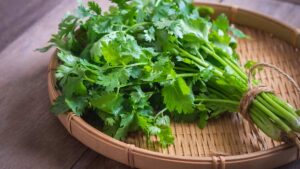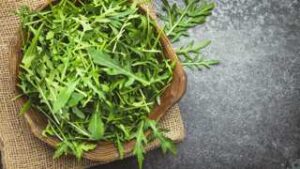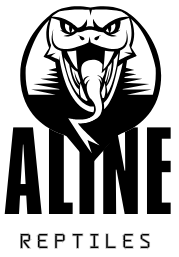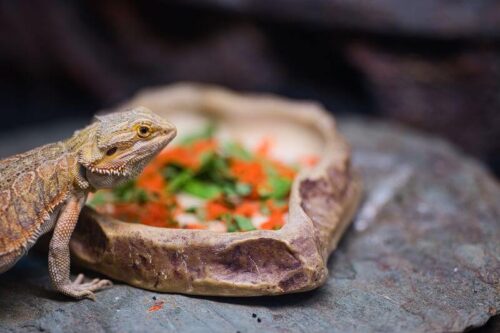Owning a bearded dragon can be a rewarding experience, but it also comes with a host of responsibilities, especially when it comes to their diet. Bearded dragons are curious eaters, often showing interest in a variety of foods, including leafy greens like cilantro. But as a responsible pet owner, you might find yourself wondering: Can bearded dragons eat cilantro safely?
This question might seem simple, but the answer requires a deeper look into nutrition, safety, and feeding practices. Let’s explore everything you need to know about feeding cilantro to your bearded dragon so you can make the best choice for your scaly friend.
Can Bearded Dragons Eat Cilantro?

The good news is, yes, bearded dragons can eat cilantro! Cilantro, also known as coriander, is a safe herb for your bearded dragon when given in moderation. It contains no toxic compounds that could harm your pet. However, like any food item, cilantro comes with a few nuances that pet owners need to consider.
While cilantro is safe, it shouldn’t be a staple food in your dragon’s diet. Bearded dragons thrive on a balanced diet of leafy greens, vegetables, and occasional fruits, along with insects for protein. Cilantro can be an excellent addition as a treat or a supplement to their diet, but it’s important not to rely on it as a primary food source.
Nutritional Benefits of Cilantro for Bearded Dragons
Cilantro is packed with essential vitamins and minerals that can support your bearded dragon’s health. Here are some of the key nutrients in cilantro and how they benefit your pet:
- Vitamin A: Promotes healthy vision, immune system function, and skin health.
- Vitamin C: Boosts the immune system and aids in tissue repair.
- Vitamin K: Supports blood clotting and bone health.
- Calcium: Essential for strong bones and preventing metabolic bone disease (MBD).
- Antioxidants: Help combat free radicals and reduce inflammation.
These nutrients make cilantro a nutritious option to include in your bearded dragon’s diet occasionally, adding variety and flavor to their meals.
Potential Risks of Feeding Cilantro to Bearded Dragons
Despite its nutritional benefits, cilantro also comes with potential risks if overfed. Here are some considerations to keep in mind:
- High Water Content: Cilantro has a high water content, which can lead to digestive issues like diarrhea if fed in large quantities. Bearded dragons require a diet that balances hydration with solid nutrients.
- Calcium-to-Phosphorus Ratio: The calcium-to-phosphorus ratio in cilantro is not ideal for bearded dragons. Phosphorus can interfere with calcium absorption, potentially leading to metabolic bone disease if not balanced with calcium-rich foods.
- Selective Eating Habits: Feeding too much cilantro might cause your bearded dragon to develop a preference for it, leading to them rejecting other vital greens and vegetables that should be staples in their diet.
- Allergic Reactions or Sensitivities: Although rare, some bearded dragons might not tolerate cilantro well. Always observe your pet for any adverse reactions after introducing a new food.
How to Properly Feed Cilantro to Bearded Dragons
To maximize the benefits of cilantro while minimizing risks, follow these tips when feeding it to your bearded dragon:
1. Choose Fresh Cilantro
Always select fresh cilantro that’s free from wilting or discoloration. Fresh herbs retain more nutrients and are less likely to cause digestive issues.
2. Wash Thoroughly
Rinse the cilantro thoroughly under running water to remove any pesticides, dirt, or contaminants. Organic cilantro is an even better option if available.
3. Chop into Small Pieces
Chop the cilantro into small, manageable pieces. This makes it easier for your bearded dragon to eat and reduces the risk of choking.
4. Serve in Moderation
Limit cilantro to a small garnish or a minor component of a mixed salad. A pinch or two of chopped cilantro once or twice a week is more than enough.
5. Combine with Other Greens
Pair cilantro with staple leafy greens like collard greens, mustard greens, or dandelion greens. This ensures your bearded dragon receives a balanced meal rich in nutrients.
6. Monitor Your Pet’s Reaction
Observe your bearded dragon for any signs of discomfort or digestive issues after feeding cilantro. If any problems arise, discontinue use and consult a veterinarian.
Alternatives to Cilantro

While cilantro is a great occasional treat, it’s essential to provide a variety of greens in your bearded dragon’s diet. Here are some excellent alternatives:
- Collard Greens
- High in calcium and other essential nutrients, making it a staple food for bearded dragons.
- Mustard Greens
- Rich in vitamins and minerals, with a good calcium-to-phosphorus ratio.
- Dandelion Greens
- A favorite among bearded dragons, these greens are nutritious and readily available.
- Turnip Greens
- Low in oxalates and high in calcium, making them a healthy choice.
- Kale
- Can be fed in moderation due to its moderate oxalate content.
Common FAQs About Bearded Dragons and Cilantro
1. Can Baby Bearded Dragons Eat Cilantro?
Yes, baby bearded dragons can eat cilantro, but it should be offered in smaller quantities and less frequently than for adults. Their diet should focus primarily on protein and calcium-rich greens.
2. Should Cilantro Be Fed Raw or Cooked?
Cilantro should always be fed raw to retain its nutritional value. Cooking cilantro can strip it of essential nutrients.
3. What if My Bearded Dragon Doesn’t Like Cilantro?
Not all bearded dragons enjoy cilantro, and that’s okay! If your pet refuses cilantro, try offering other leafy greens or herbs to see what they prefer.
4. Can I Feed My Bearded Dragon Cilantro Every Day?
No, cilantro should not be fed daily. Overfeeding cilantro can disrupt the nutritional balance of your bearded dragon’s diet.
Conclusion
Can Bearded Dragons Eat Cilantro? Cilantro can be a safe and nutritious addition to your bearded dragon’s diet when fed in moderation. Its rich vitamins and antioxidants make it a great treat, but it’s essential to balance it with other staple greens to ensure your pet’s overall health. Always observe your bearded dragon’s reactions to new foods and consult a reptile veterinarian if you have concerns.
By understanding the nutritional needs of your bearded dragon and offering a varied diet, you can ensure they thrive in your care.

